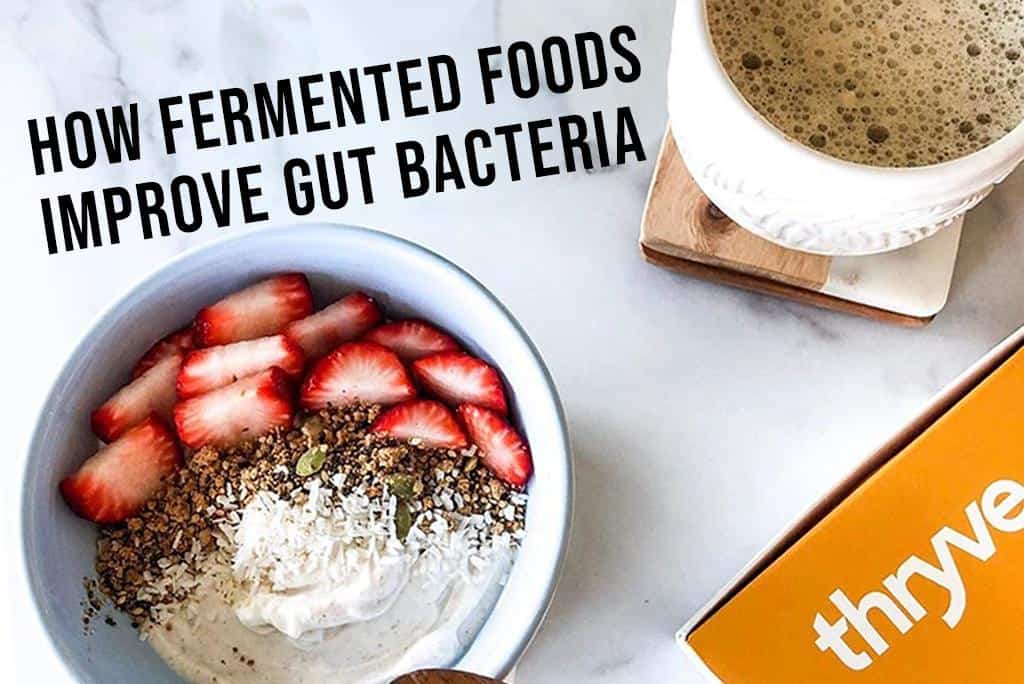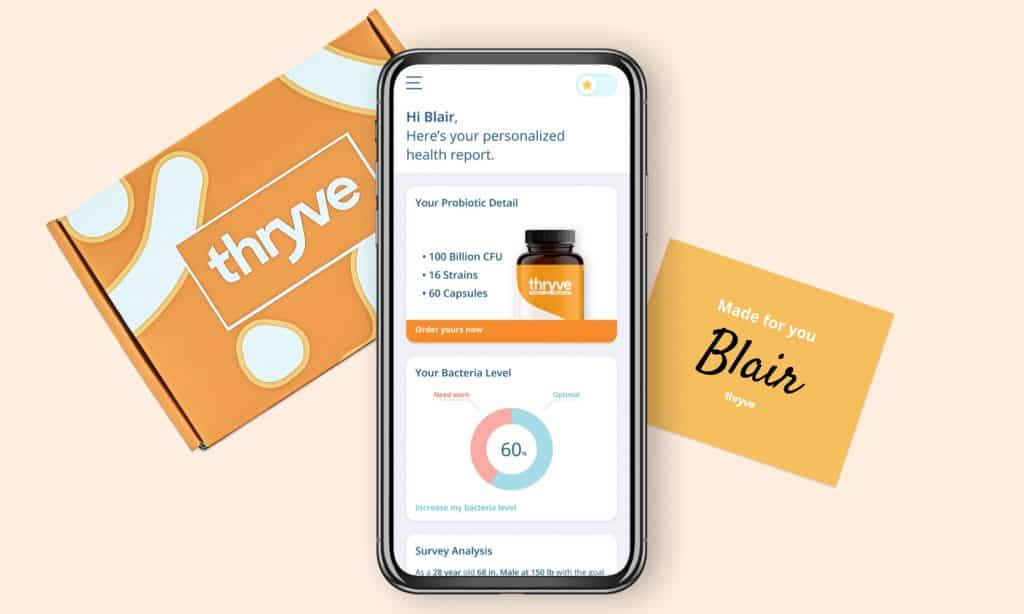
The world is becoming more aware of the importance of maintaining a healthy gut. Beneficial gut bacteria are essential for supporting our immune system, digesting food, and balancing our mood. Sadly, the standard Western Diet leaves our body susceptible to inflammation, virtually decimating our probiotic bacteria. Thankfully, consuming fermented drinks can help introduce good bacteria to your gut. Let’s discuss how kombucha, milk kefir, apple cider vinegar, and other fermented beverages can improve your gut health.
Table of Contents
Brief History of Fermented Drinks
Since the Middle Ages, humans have fermented foods to preserve their harvests. They would jar everything from black tea to herbs to fruits in a brine. Over time, the food would develop a vinegar flavor. Meanwhile, the liquid would transform into an alcoholic beverage.
From the Neolithic era to present-day Ayurveda practitioners, humans use fermented drinks to create tonics. Various tonics are used as remedies to aid digestion problems, improve skin health, and support the immune system.
While our ancestors had a hunch that drinking fermented beverages can improve health, they didn’t have the science to back it up. The key to reaping a fermented drinks’ health benefits lies in probiotic bacteria from the beverage inoculating with your intestinal microbiota. The strength of these live bacteria is dependent on the fermentation process.
Quick Intro to Fermentation Process
We know you’re probably well-versed in all things fermentation. To get everyone on the same page, we will give a crash course on the fermentation process. This method of food preservation lends itself to the many health benefits found in probiotic drinks.
Fermenting foods entails preserving various foods in water. Natural bacteria will begin to feast on the carbohydrates in the fruits, veggies, etc. encased in the brine. These natural sugars provide sustenance for natural bacteria.
Since probiotics are living bacteria, they also must produce waste. That waste includes various nutrients, enzymes, and short-chain fatty acids that help repair your gut and improve your health.
How Fermented Drinks Help Your Gut
Sipping fermented beverages is an excellent way to add probiotics to your gut microbiome. They are liquid-based, which means there’s less digesting for your body to do. Therefore, some of your drink’s nutrients have a higher chance of survival than if you were eating fermented food like a pickle. Here are some ways that popular fermented beverages can improve your health.
Kombucha
Kombucha is made by seeping black, green, or herbal tea in water that’s sweetened with natural sugars. The tea leaves are discarded, and the starter tea water is jarred with a culture of yeast cells, known as a SCOBY.
This traditional fermented drink is teeming with antioxidants that help fight off free radicals. Free radicals are precursors to many health-related conditions.
While green tea and black tea have their own health benefits, research shows that the fermentation process may augment these perks. One study noted that kombucha tea made from a symbiotic culture of bacteria and yeast cells had a more prominent role in reducing liver damage (hepatotoxicity) than regular black and green tea.
Be careful when shopping for kombucha in grocery stores. The spike in popularity of kombucha has caused larger manufacturing operations to cut corners. They’re using refined sugars and lemon juice concentrates to flavor their beverages. Be sure to read the labels to ensure you’re buying the highest quality tea!
Kefir
This fermented beverage is made by adding kefir grains into a liquid. Your choice of liquid will dictate the flavor and potential health benefits of your brew.
The two types of kefir are:
- Water Kefir (Made with Natural Sugar Water, Coconut Water, or Fruit Juice)
- Milk Kefir (Made with Cow’s Milk, Goat’s Milk, or Coconut Milk)
Water kefir has shown to help boost levels of Lactobacillus bacteria strains. Research suggests that this probiotic bacteria can help prevent fungal infections, including Urinary Tract Infections (UTIs).
Additionally, water kefir may reduce inflammation in lung tissue and mucus within respiratory pathways. These are common symptoms of immune responses associated with asthma.
Milk kefir is relatively high in lactic acid. Analyses of lactic acid bacteria show it may help offset uncomfortable symptoms of lactose intolerance. Lactic acid bacteria eat the lactose but create lactic acid instead of gas as a byproduct. This results in a decrease in associated lactose intolerance symptoms.
Also, consuming dairy kefir helps keep serum cholesterol levels in balance. That means fermenting kefir grains can boost your heart health and improve your digestion all in one!
Apple Cider Vinegar
Apple cider vinegar with mother is more than just a great grandmother’s tale. This fermented beverage is a versatile elixir that can improve many facets of your everyday life.
Apple fruit juice is placed into a jar with live yeast cultures. As the yeast feast on the natural sugars in the fruit juice, it becomes an alcohol beverage. Inevitably, bacteria turn the alcohol into acetic acid.
Acetic acid is beneficial for balancing pH levels in the gut and urinary tract. It’s used in medical circles to cleanse catheters and urethras. This all-natural astringent fights off calcium build-ups that create blockages in the system (and medical equipment). That’s why many people drink a glass of water infused with a shot of ACV first thing in the morning!
Kvass
This traditional fermented drink from Eastern Europe is an excellent way to boost probiotic bacteria in your gut. It’s made by fermenting barley, wheat, or rye bread with a wild yeast starter. It’s common to add raisins, sap, or berries to the mix to make fruit kvass. Over the past few years, beet kvass has grown in popularity, as well!
Kvass is a great source of amino acids. Amino acids are the building blocks for life for our cells. We need them to repair our damaged gut lining, replace fat cells with muscle, and to produce hormones.
Drinking beet kvass may improve your nitric oxide production. Your body uses nitric oxide to help clear out debris clogging up our arteries. That way, blood can flow from the heart, throughout the body, and back to the heart again.
We rely on this oxygenated blood to help rejuvenate cells that line our stomach. Without this support, our gut cells are more susceptible to wear and tear. Inevitably, toxins from the small intestine might permeate through the gut lining, creating a breeding ground for pathogenic bacteria to infect the body.
Soy Sauce
Traditional soy sauce is made by soaking soybeans in water for a long period. Then, the beans get steamed and mixed with roasted wheat. A live culture (typically the mold, Aspergillus) is added to the brew and fermented to create everyone’s favorite sushi condiment.
Research suggests that fermented soy products can help control LDL cholesterol levels. It’s shown to improve some symptoms associated with type 2 diabetes, cardiovascular disease, and cancer.
However, you should be careful when choosing the right soy sauce. Many soy sauce brands in grocery stores have MSG or elevated levels of salt. These will have the opposite effect on your blood pressure and cholesterol levels. If you find the sodium content too high, perhaps opt for liquid amino acids instead.
Incorporating Fermented Drink Products Into Your Lifestyle
Want to start drinking more fermented beverages? Maybe you want to try your hand at making your own probiotic drinks? Either way, knowing where to begin might be difficult. Thankfully, our friends at Thryve might be able to help.
Join The Thryve Health Program and Save

Thryve is an all-encompassing at-home gut health program. They send you everything you need to safely and easily procure a DNA sample from your toilet paper and mail to their laboratory for analysis.
Gut microbiome experts at Thryve use magnetic-based DNA extraction. Their team performs mechanical and enzymatic protocols to isolate and identify your stomach bacteria.
Their test determines:
- Percentages Of Bacterial Species In Your System
- Which Bacteria Are Causing You Health Issues
- Which Foods Caused Them to Take Over
- Which Bacteria Your System Needs
- Which Foods They Need to Grow
In just a couple of weeks, you will receive a gut health report. It comes with a breakdown of the bacterial species living in your gut. Thryve provides you with extra information on every species so that you can obtain a foundational knowledge of these microbes.
They then create a map towards creating a personalized gut health plan. First, Thryve recommends a custom probiotic supplement that they can deliver to your door each month. Unlike generic probiotics at the grocery store, these contain a symbiotic colony of bacteria that your gut is lacking.
There are thousands of strains of bacteria that reside in your gut. Each has its own particular nutritional and environmental requirements to survive. What you eat and drink will dictate which bacteria live in your gut.
By knowing the intestinal flora currently in your microbiome, Thryve can let you know which foods to avoid. They also have a database with hundreds of gut healthy recipes categorized by the bacteria you’re trying to grow in your stomach. Yes, they even have recipes for fermenting whole foods, drinks, and other wild ferments!
The first step to tailored probiotic intervention is getting your Thryve Gut Health Test Kit and use the code FERMENT for 10% off. They will test the bacteria in your system and get you on a probiotic subscription tailored for your actual body. Then, you’ll be off on your gut health journey!

Hi Gigi, Your kimchi recipe made me start fermenting food and i am loving it. I am now fermenting so much be it food or drinks.
I had one question though, is there any recommended amount of Kombucha one should be having? Would excessive amount cause any harm to our system?
Hi Shreya, that’s great to hear 🙂 I would suggest drinking kombucha in moderation like 1 cup per day. However, if you have any health concerns I would suggest you speak to your health professional.